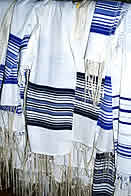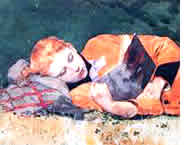| |||||||||||||||||||||||||||||||||
| Getting Started | |||
| Scholars argue> | Yes | No | Jesus Theories |
| Facts > | Sourcebook Anthologies | Sourcebooks: ancient texts | |
| Background > | Ancient Civilization | Ancient Religion | Early Christianity |
| Special topics | Mystery Religions | Ancient Judaism | |
| Amateur > | Pagan Origins | Hablo Greek-o | |
|
Ancient Judaism
|
  . . |
| Backgrounds
of Early Christianity
|
An outstanding
book to start with.
If you need a special-purpose book to understand Christianity's Pagan origins, then probably Christianity didn't have Pagan origins. It does; you don't. What you really need is a good book describing ancient Pagan culture and religion. This outstanding, easy to read book is the best I've read. From Greco-Roman religions (Mithras, Isis, Dionysus, Eleusis, the mystery religions, etc.) and philosophies (monotheism, the soul, life after death, etc.), on through an excellent section on Second Temple Judaism and another on early Christianity, you'll discover the facts and issues behind modern scholarship on Christian origins. I bought this book on a whim, figuring it would have a relevant section or two; I ended up reading the thing cover to cover, 600 delightfully clear and well written pages. But you don't have to read it cover to cover—just pick the section you're interested in.
|
|
Bandits Prophets & Messiahs
|
What
you'll find:
|
|
|
|
The Scepter and the Star
|
What
you'll find:
|
|
The New Complete Works of Josephus
|
What you'll find:
|
|
|
|
Jews in the Mediterranean Diaspora
|
What you'll find:
|
|
|
|
The Jews Among the Greeks and Romans,
A Diasporan Sourcebook
|
What you'll find:
|
| The
Early History of God
|
Like Christianity, Judaism had Pagan origins. Sound kooky? It's mainstream scholarship, though you don't come across it often. This well written, easy to read book is by one of the preeminent experts in the field. Jewish ritual and mythology developed directly from Canaanite ritual and mythology. Yahweh was originally the son of the Canaanite God El and brother of the Canaanite God Baal. How do we know this? Ugarit. In 1927 they dug up a Canaanite clay tablet library buried at Ugarit, an ancient city along the northern coast of Syria. Hundreds of ancient texts. Same myths. Same rituals. Same Gods. Only centuries earlier than Judaism. Who knew?
|
|
|
| The Origins
of Biblical Monotheism
|
What you'll find:
For example: "[T]he priestly theological treatment of Israel's early religious history in Exodus 6:2-3 identifies the old god El Shadday with Yahweh:
This passage shows that Yahweh was unknown to the patriarchs. Rather, they are depicted as worshipers of El. In Israel El's characteristics and epithets became part of the repertoire of descriptions of Yahweh. Like El in the Ugaritic texts, Yahweh is described as an aged, patriarchal god ..., enthroned amidst the assembly of divine beings" [pg 141] It helps to know a bit about Ugarit before you start. Exhaustive, exhausting. Expensive—but worth every penny. HIghly re commented.
|
| The Meaning
of the Dead Sea Scrolls
|
What you'll find:
|
|
|
|
The Complete Dead Sea Scrolls in English
|
What you'll find:
|
|
Ancient Judaism and Christian Origins
|
What
you'll find:
Christianity, says Nickelsburg, got its key theologies from intertestamental Judaism. This evidenced-based analysis should make apologists less happy than you'd think, since 1) It explains Christian ideas as flowing not from Jesus' revelation, but from the local culture. 2.) Pagan Origins wise, it's a distinction without a difference. Christianity got 'em from Judaism. Judaism got 'em from Paganism.
|
|
|
| 1 Enoch |
What you'll find:
Enoch is a Jewish hero who gets just a line or two in our Old Testament. In intertestamental Judaism his legend was puffed up with new myths that sound right familiar to folks who've read the Bible. Adds plausibility to the theory that the Jesus stories are
mythic elaborations of old Jewish legends (Isaiah).
|
|
|
| Ugarit
and the Old Testament (1983)
|
A nice little (110 page) general-audience introduction to Ugarit (modern Ras Shamara in Syrian), where clay tablets discovered in 1929 revealed a pre-Israelite Semitic civilization with gods and myths similar to, but earlier than, Old Testament gods and myths. If you can find it cheap, read this before you read Smith's Origins of Biblical Monotheism.
|
|
|
| Old Testament
Parallels  |
What you'll find:
There are lots of books like this to choose from. This is one of the clearest, most readable, and most comprehensive. Highly recommended.
|
|
|
|
The Ancient Near East, Volume II)
Ancient Near East in Pictures Relating to the
Old Testament. With Supplement
Ancient Near Eastern Texts Relating to the Old
Testament with Supplement |
What you'll find:
A famous scholarly work, accessible to laymen.
|
|
|
|
|
What other people think about POCM | |
|
Greg, I've been meaning to write to you for a several months to tell you how much I enjoy your web site. However my fear of seeing my email listed on your feedback page with all my spelling errors highlighted in red and an image of a dunce cap next to it has kept me at bay. Today though I'm confident my email spill chucker won't let me down.
|
||



















 Last
year around this time I began researching old European Christmas customs
on the internet and stumbled onto a page which compared Mithras and
Jesus. I found the parallels intriguing and have been researching Christianity's
pagan origins ever since. Your web page has made my study so much easier.
I appreciate the methodical, well structured argument you laid out on
your web page, but it's your Good Books section that has been
the most helpful. In the last few months I've read Shorto's
Gospel Truth, most of Price's Deconstructing
Jesus, and sections of Koester's Introduction
to the New Testament Volume 2: History and Literature
of Early Christianity. Amazon just emailed me that Bauer's Orthodoxy
and Heresy in Earliest Christianity is on its way. It
looks like I'll have lots of good reading material this winter.
Last
year around this time I began researching old European Christmas customs
on the internet and stumbled onto a page which compared Mithras and
Jesus. I found the parallels intriguing and have been researching Christianity's
pagan origins ever since. Your web page has made my study so much easier.
I appreciate the methodical, well structured argument you laid out on
your web page, but it's your Good Books section that has been
the most helpful. In the last few months I've read Shorto's
Gospel Truth, most of Price's Deconstructing
Jesus, and sections of Koester's Introduction
to the New Testament Volume 2: History and Literature
of Early Christianity. Amazon just emailed me that Bauer's Orthodoxy
and Heresy in Earliest Christianity is on its way. It
looks like I'll have lots of good reading material this winter.